Online
Steel pipe
Steel pipe is a pipe product made of steel and is widely used in various industrial and civil pipe systems. It is usually used to transport liquids, gases, solids and other media, and has high mechanical strength, good corrosion resistance and durability. There are many types of steel pipes, including seamless steel pipes, welded steel pipes, galvanized steel pipes, stainless steel pipes, etc., which are suitable for industries such as petroleum, chemical industry, construction, refrigeration, and electricity, and are indispensable infrastructure in modern pipe systems.
Phone
+86 15733710333
info@global-flange.com
WhatsApp / WeChat
+86 15733710333
Related Products
List
1. Product features:
Excellent mechanical properties:
Steel pipes are made of high-strength steel, with high mechanical properties such as compression, tension and bending resistance. They can withstand greater working pressure and adapt to a variety of harsh environments.
Good corrosion resistance:
Steel pipes are galvanized, coated, anti-corrosion treated and other technologies to effectively prevent damage to pipes in humid or corrosive media environments and extend their service life.
High strength and light weight:
Compared with traditional concrete, plastic and other pipes, steel pipes not only have high strength, but also maintain a lighter weight, which is convenient for installation and transportation.
High and low temperature resistance:
Steel pipes are suitable for high temperature, high pressure and low temperature environments, can withstand the impact of temperature changes, and are widely used in the transportation of media such as steam, hot water, and frozen liquids.
Excellent processing performance:
Steel pipes can be cut, bent, welded and processed according to needs, flexibly adapt to different pipeline systems and installation requirements, and are easy to construct and customize.
Long-term durability:
Steel pipes have a long service life. After good surface treatment, they can operate stably for a long time in harsh working environments.
2. Technical parameters:
| Material | Carbon steel, stainless steel, alloy steel, weathering steel, etc. |
| Specification | Outer diameter: 6mm ~ 1200mm, wall thickness: 1mm ~ 50mm, can also be customized according to customer requirements |
| standard | Comply with GB, ASTM, DIN, API, JIS, EN and other domestic and international standards |
| Surface treatment | Galvanizing, spraying, painting, anti-corrosion coating, etc. |
| Connection | Welding, threaded connection, flange connection, clamp connection, etc. |
| Work Pressure | Can be customized according to the working environment and design pressure, suitable for low pressure, medium pressure and high pressure environments |
| Temperature range | -50°C ~ 450°C (adjusted according to specific steel pipe type and purpose) |
3. Product categories:
Seamless steel pipe:
Seamless steel pipe is processed from metal billets through extrusion, drawing and other processes. There is no welding seam, with good overall performance, and is widely used in high-pressure boilers, oil pipelines, mechanical structures and other fields.
Welded steel pipe:
Welded steel pipe is made by welding steel strips or steel plates into a tube shape, which has good economy and is suitable for pipeline systems with low pressure. Common ones are straight seam welded pipes and spiral welded pipes.
Galvanized steel pipe:
Galvanized steel pipe has good corrosion resistance by coating a layer of zinc on the surface of the steel pipe. It is often used in water pipes, gas supply pipelines and other fields.
Stainless steel pipe:
Stainless steel pipe has excellent corrosion resistance and high temperature resistance. It is widely used in chemical, pharmaceutical, food, marine and other industries, especially suitable for highly corrosive environments.
Alloy steel pipe:
Alloy steel pipe is composed of a variety of alloy elements, with stronger high temperature resistance, corrosion resistance and pressure resistance, suitable for pipeline systems under high temperature, high pressure and harsh environments.
Insulated steel pipe: Insulated steel pipe is a layer of insulation material wrapped around ordinary steel pipe, which is used to transport hot water, steam and other media to prevent heat loss. It is widely used in heating pipelines, petrochemicals and other fields.
4. Application fields:
Petroleum and natural gas industry:
Steel pipes are widely used in oil and natural gas pipelines, especially in high pressure and high temperature environments, to ensure stable fluid transportation.
Chemical industry:
In the chemical production process, steel pipes can be used to transport various chemical media, especially in highly corrosive environments, stainless steel pipes and alloy steel pipes have excellent corrosion resistance.
Power industry:
Steel pipes are widely used in steam pipes, cooling water pipes and other systems in power plants, and can withstand high temperature and high pressure conditions.
Construction industry:
Steel pipes are widely used in various piping systems in buildings as water pipes, wire pipes, HVAC pipes, etc., to provide stable fluid transportation.
Machinery manufacturing:
As part of the mechanical structure, steel pipes are widely used in engineering machinery, automobile manufacturing, aerospace and other fields, playing a supporting and transmission role.
Refrigeration and air conditioning industry:
Steel pipes are used in refrigeration pipes and air conditioning systems, especially in large cooling systems and refrigeration equipment.
5. Advantages:
High strength and stability:
Steel pipes have excellent mechanical properties, can withstand large internal and external pressures, and are suitable for high-pressure and high-temperature pipeline systems.
Good corrosion resistance:
Steel pipes treated with galvanizing, stainless steel, etc. can effectively resist corrosion and adapt to harsh environments.
Energy saving effect:
Steel pipes can effectively reduce the heat loss of fluids in the pipeline, especially in the transportation of high-temperature fluids, which can ensure temperature stability and save energy.
Easy installation:
Steel pipes have good processing performance and can be cut, bent, and welded as needed to meet various complex pipeline system installation requirements.
Economical and practical:
Steel pipes not only have strong physical properties, but also have relatively economical prices. They are widely used in all walks of life and have high cost performance.
Quality assurance:
Our steel pipes strictly follow international standards and industry specifications for production and quality inspection to ensure that each steel pipe meets standard requirements. Products undergo strict quality inspections before leaving the factory to ensure that they are defect-free and have stable performance.
6. Packaging and transportation:
Packaging: Steel pipes are packed in wooden boxes, pallets, wrapping films and other packaging methods according to specifications, quantity and customer needs to ensure that they are not damaged during transportation.
Transportation: We provide a variety of transportation methods such as sea, air and land transportation to ensure that the steel pipes are delivered on time and safely.
7. Precautions:
Inspection before installation:
Before installation, check whether the surface of the steel pipe is intact to avoid surface damage affecting the normal use of the pipeline system.
Maintenance:
After the steel pipe is installed, regularly check the sealing and external protective layer of the pipeline to avoid corrosion or leakage.
Applicable temperature and pressure:
Ensure that the appropriate steel pipe specifications and materials are selected according to the actual working conditions of the pipeline to prevent excessive temperature or pressure from affecting the service life of the steel pipe.
8. Summary:
As an important pipeline accessory, steel pipes are widely used in many industries such as petroleum, chemical, electric power, and construction due to their excellent mechanical properties, corrosion resistance and high strength. Whether it is used in high-temperature and high-pressure pipeline systems or in environments that require corrosion resistance, steel pipes can provide stable transportation functions. Choosing the right steel pipe can not only ensure the safety of the pipeline system, but also improve the operating efficiency of the entire project.
Production Process
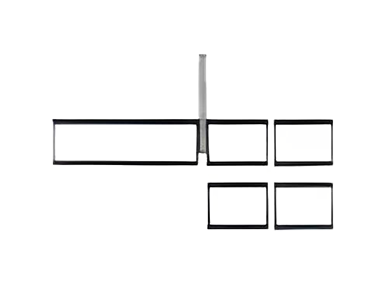
Material Cutting
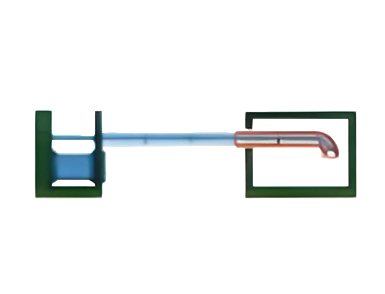
Medium Frequency Heat Forming
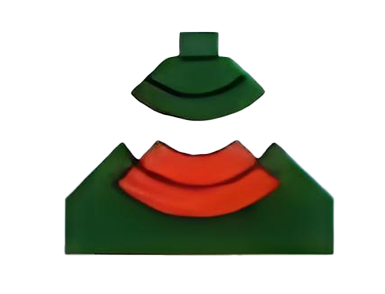
Calibration

Heat Treatment

Final Processing
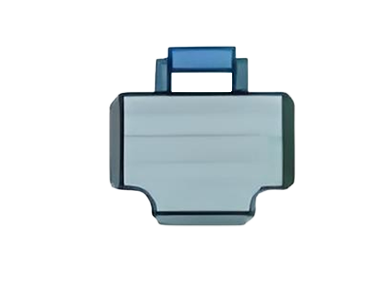
Non-destructive Testing

Surface Treatment
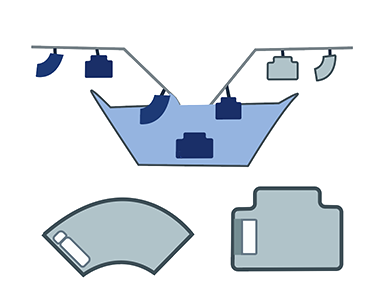
Coating and Marking
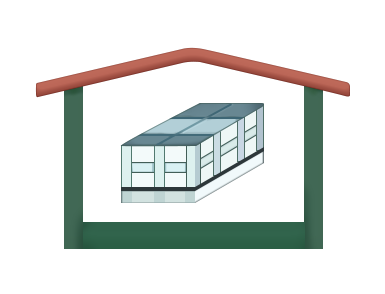
Packaging and Delivery













